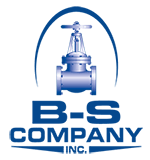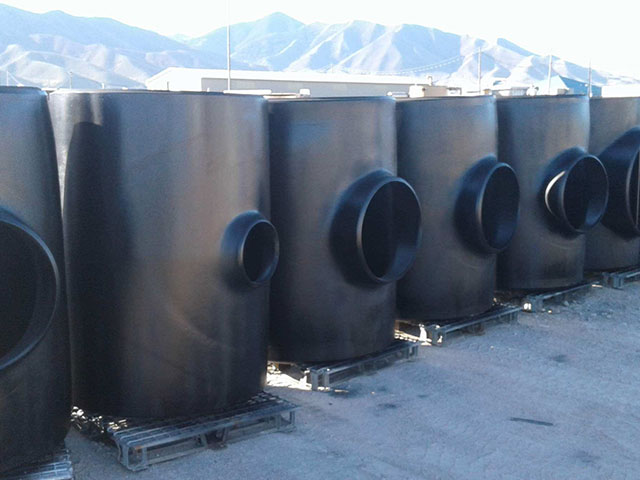BS Company is a supplier of high yield fittings and piping made from all kinds of materials,
including stainless steel. Although different sorts of pipes are all suitable for various uses,
stainless steel is one material that has proven popular for piping used in an astonishing
array of environments and functions.
Stainless steel is an alloy of iron and chromium. All grades of stainless steel must consist of
at least ten per cent chromium. The strength and durability of the metal come
predominantly from its chromium content. It also contains varying quantities of carbon,
silicon and manganese. Nickel and molybdenum are also added in some grades, depending
on the intended use. This is because stainless steel presents the following advantages.
1. Value for money
Stainless steel pipes are not the cheapest option available, but they do offer the best value
for money compared to most alternatives. Stainless steel is a durable product that will last
for decades. It is easy to install and maintain, and since it is so resistant to corrosion, it
won’t need replacing or repair for a very long time. This means reduced costs for you in the
long run.
2. Stain and corrosion resistance
With most piping materials, staining and corrosion are the biggest problems. The pipe is
exposed to corrosive materials on both the exterior and interior, which can wear them
down over time. Iron, steel, and even concrete piping can degrade progressively as a result
of exposure to the elements. Sunlight, soil, rust and abrasion all cause cumulative damage.
Stainless steel is extremely resistant to corrosion, however, and is able to withstand these
threats. This makes stainless steel an obvious choice, especially in applications such as the
delivery of water.
Stainless steel’s resistance to corrosion is due to its chromium content. All stainless steel
consists of at least ten per cent chromium. When the steel is exposed to oxygen, a process
known as passivation occurs. The result of this is that a thin water- and air-resistant layer
forms on the surface of the steel, helping it to resist corrosion for long periods of time.
3. Strength
As a general rule, stainless steel is an exceedingly strong material. Some stainless steel
alloys are stronger than others due to higher levels of nickel, molybdenum or nitrogen.
Stainless steel is physically strong and able to withstand high levels of impact and pressure.
4. Temperature resistance
There are certain grades of stainless steel that are formulated to last under extreme
temperatures. This is extremely important for piping. Pipes could be positioned in an area of
extreme heat or an area where environmental temperatures frequently plunge below zero.
Stainless steel can withstand both of these extremes.
5. Versatility
Stainless steel piping can also be applied to a wide variety of uses and environments.
Different materials added to steel during the production process can help to increase its
strength and corrosion-resistance, while also reducing its weight and thickness. This means
that it can be used more easily in diverse commercial and industrial applications.
6. Appearance
In situations where piping is going to remain exposed and will require a polished, shiny and
elegant appearance, you don't need to look any further than stainless steel. Because of its
extreme resistance to corrosion and tarnishing, stainless steel maintains its shine without
much maintenance. It can really add to the look of the right environment, adding a
decorative touch to modern, sleek, industrial or semi-industrial aesthetics.
7. Environmental friendliness
Stainless steel has several properties that make it a more environmentally friendly choice
than other materials. For a start, stainless steel is not a petroleum product and it does not
need to be treated, coated or lined with any materials that might be harmful to the
surrounding natural environment. In addition, stainless steel is 100% recyclable. As much as
50% of all new stainless steel that is produced in the United States is made from recycled
scrap metal.
8. Stainless steel is quick and easy to produce
Fabricating stainless steel pipes is quite an easy process. It can be cut and formed quickly,
meaning that they can be produced to order with short turnaround times. If you need pipes
quickly, stainless steel is the way to go.
9. High ductility
Stainless steel is a highly ductile material. This is one of the properties that contribute to its
versatility and strength. Ductility is a measure of a material’s ability to undergo hammering
or stretching before breaking. Most metals are ductile to varying extents, and stainless steel
has a particularly high ration of ductility to strength. This means that stainless steel can be
fabricated into pipes of an astonishing variety of lengths and gauges while still maintaining
its sturdiness and durability.
Stainless steel is often described as a “miracle metal” because of its versatility and strength.
It can be used in almost all commercial and industrial applications. BS Company stocks all
the varieties you need, regardless of the use you have in mind. We keep an extensive
inventory of both new and surplus piping, and we can customize your stainless steel
pipework to fit your needs. We can supply all kinds of grades and types, including 304, 304L,
316, 316L, 310, 321 and 410, among others, as well as both seamless and welded stainless
steel.
About BS Company
B-S Company opened it’s doors in 1990 at a small 8,000 sq/ft location, “The Office“; (below)
in Magna, UT. We’re grateful for the growth we’ve seen over the years and now operate 3
branches, and 1 manufacturing facility. Our inventory consists of:
- 6,000 + tons of pipe ON THE GROUND! (300 semi truckloads)
- 1,500 + tons of fittings & flanges ON THE GROUND! (75 semi truckloads)
- 10,000 + valves ON THE GROUND
For more information, contact BS Company, the leading supplier of piping, valves and fitting
in Salt Lake City.


